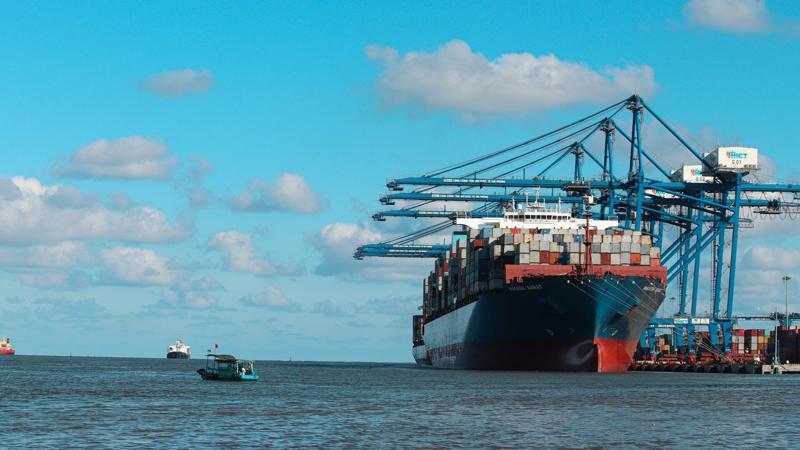Dockworkers on the East and Gulf Coast are returning to work and reopening U.S. ports for new shipments after reaching a deal with the Maritime Alliance that boosts workers pay.
The International Longshoremen’s Association, which represents 45,000 dockworkers, released a statement Thursday saying they had reached a “tentative agreement,” preventing a major supply chain and cost issue just weeks before the U.S. election.
“Effective immediately, all current job actions will cease and all work covered by the Master Contract will resume,” ILA said in a statement.
The deal gave workers a 62% raise over the next six years and extends the current contract until Jan. 15, beyond Election Day. Biden-Harris administration officials reportedly helped mediate the deal, which also includes promises to avoid automation, though those details are not yet finalized and public.
Negotiators will keep hammering out the details of that agreement in the weeks to come, and there is a small chance the deal, which has not been signed off on by workers, could fall through.
Workers rejecting union deals is not uncommon. Last month, Boeing workers in the Pacific Northwest rejected a union leadership-negotiated pay raise of 25% over four years and are currently on strike, even after Boeing has since offered to up the raise to 30%.
Vice President Kamla Harris, the Democratic nominee for president, praised the deal. If it were to fall through before Election Day, she could have a political liability on her hands. Prices would begin to rise steeply after already rising more than 20% since she took office.
“This step indicates progress toward a strong contract and represents the power of collective bargaining,” Harris said in a statement. “As I have said, this is about fairness – and our economy works best when workers share in record profits. Dockworkers deserve a fair share for their hard work getting essential goods out to communities across America.”
The longshoremen had brought much of the U.S. economy to a halt this week with a workers strike that effectively closed the entire East Coast and Gulf Coast’s shipping capabilities.
Many experts warned earlier this week of the high cost of the strike, predicting escalating prices on all kinds of goods, from groceries to alcohol to cars and more.
President Joe Biden lauded the agreement on Thursday.
“I applaud the International Longshoremen’s Association and the United States Maritime Alliance for coming together to reopen the East Coast and Gulf ports and ensure the availability of critical supplies for Hurricane Helene recovery and rebuilding,” Biden wrote on X, formerly known as Twitter. “Collective bargaining works.”
The strike had sparked criticism for the Biden-Harris administration for not acting sooner to avert it as well as critiques of the longshoremen, many of whom are well paid compared to the average American salary. Negotiators had been trying to find an agreement since June.
The potential shipping disruption came amid the recovery from Hurricane Helene, a disaster that has caused billions in damage, destroyed infrastructure, caused food and water shortages, and left many dead or missing.
“Disrupting the distribution of food, equipment, and supplies as the Southeast U.S. recovers from Hurricane Helene is unacceptable,” Florida Gov. Ron DeSantis wrote on X.
“Floridians need a reliable, steady supply of resources and building materials to keep their families fed and rebuild their homes and businesses,” he added.






